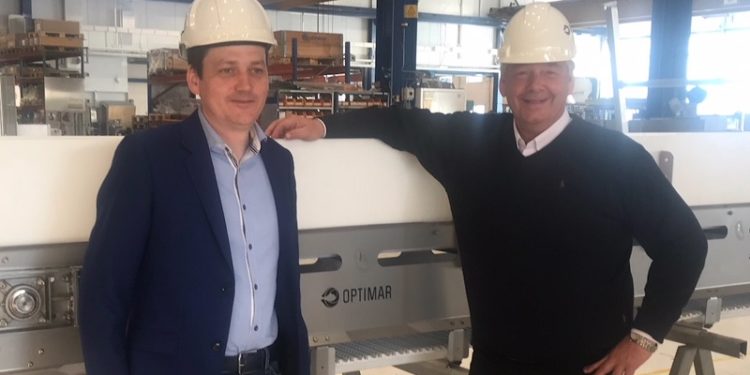Norwegian specialist supplier Optimar intends to use its extensive expertise in fisheries and aquaculture to develop processing solutions that exploit marine resources even more effectively than today.
‘The sea is our livelihood, so we want to help create value by maximising the use of the resources the sea provides,’ a spokesman for the company said, commenting that the decision was prompted by Optimar’ss work on the development of a krill processing facility for the new Aker Biomarine vessel.
‘Optimar specialises in the planning and execution of complex, bespoke projects, and it is here the company’s new focus on marine waste processing comes in,’ Optimar’s spokesman said.
‘We possess a wealth of expertise in the design and delivery of high-tech factory solutions and want to use this knowledge to develop the processing industry. To do so, we have put together a dedicated team, which will be led by Peder Stette, Anders Bjørnerem and Andre Akse.’
Optimar will supply production facilities, both on land and at sea, that will process residual marine raw materials either for human consumption or for animal feed. Such factory solutions will not be restricted to newbuild vessels. Older fishing vessels and onshore facilities can also be equipped with high-tech solutions for the processing of raw materials that would otherwise go to waste.
‘Utilisation of residual raw materials has an important role to play in a sustainable marine industry. Within the fisheries sector, there are quota-based systems that set catch limits. By exploiting every part of the fish, we can protect the environment, feed more people and increase our clients’ profit margins. The aquaculture industry is also growing fast. Here, too, complete exploitation of the raw material offers many benefits.’
Times change
While fish offal and offcuts used to be considered waste, they have gradually become a valuable resource for the fisheries and aquaculture industries. They can be turned into fish oil, fishmeal and protein powder, which – in turn – can be further processed into a host of other products.
At present, large amounts of these ingredients are used for animal feed. However, new solutions and better equipment open new opportunities to use a larger proportion for human consumption instead.R03;R03;
Digitalisation offers new opportunities
New data technology also offers completely new opportunities for improved processing. Optimar is devoting considerable resources to the development of a new control system that will not only provide better production management and a better quality end product; it will also ensure complete documentation. Optimar’s new control system will also help improve maintenance efficiency, since it will notify the operator in advance when parts need replacing or service is required.









